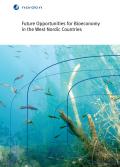This study, undertaken by Eunomia Research & Consulting (Eunomia) in conjunction with Professor Mikael Skou Andersen of Aarhus University and the Institute for European Environmental Policy (IEEP), has, as its central aim, to: “… provide empirical data or secondary sources on the potential economic and social benefits of environmental fiscal reform, to support the input in the European Semester process on environmental protection and resource efficiency”. The specification elaborates on this as follows: “The task includes presenting data on the potential of revenues from environmental taxation and other indirect benefits such as job creation resulting from EFR in 14 selected countries, using the methodology the EEA has developed and which was also applied to the study published on 03.03.14 for 12 Member States”. The following 14 Member States were included in this study: Bulgaria, Cyprus, Denmark, Finland, Germany, Greece, Latvia, Malta, Netherlands, Slovenia, Spain, Sweden, Ireland, United Kingdom.

This compendium explores greening the economy on four levels – individual, business, city, and nation. It looks at the relationships between these levels and gives many practical examples of the complexities and solutions across the levels. Scandinavia, a pioneering place advancing sustainability and combating climate change, is a unique starting point for learning about greening economies. The study includes many initiatives implemented in Scandinavia since the 1970s that are all potentially useful for other countries and contexts. Throughout this compendium, the user will find many examples with links to relevant websites, documents and films.
Copenhagen is widely recognised as a leader in the global green economy. The Copenhagen region accounts for almost 40% of Denmark’s output and has enjoyed long-term stable growth. At a national level, Danish GDP per capita is ranked among the top 10 countries in the world. At the same time, the city’s growth has been delivered while improving environmental performance and transitioning to a low-carbon economy.
This report, which we have produced in partnership with the City of Copenhagen, shows that the city continues to build on its pioneering success. Copenhagen has set itself the ambitious target to be carbon neutral by 2025, and the report looks at the challenges and opportunities involved in delivering this transformative agenda.
Featuring a wealth of new research findings, the report shows how Copenhagen’s success is underpinned by a strong combination of the city’s green growth drivers. A number of these drivers rank among the best in Europe and the world, including the city’s compact urban form, strong innovation, high skills and employment, low carbon emissions, and improved environmental quality.

